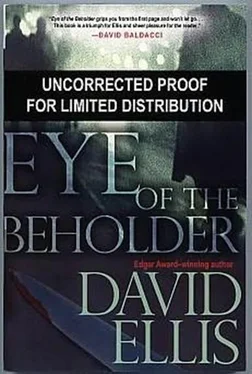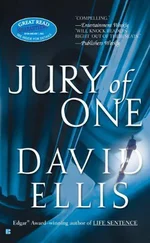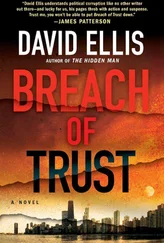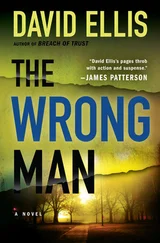It used to be. But I’ll never be a prosecutor again.
I lean over the veranda’s railing, the warm wind curling under my T-shirt, the rays of the sun warming my face, images of Leo Koslenko and the Mansbury victims and, most of all, Terry Burgos swimming through my mind. I think of him strapped in the electric chair, chubby and disheveled, looking into my eyes as the prison guard called out that Burgos had no last statement.
I’m not the only one, he’d mouthed to me, his final words. Was he simply quoting Tyler Skye’s lyrics? Or did some part of his brain know his words to be true?
I use my cell phone. The number has been programmed in, at the governor’s insistence. I didn’t plan on using it.
I get an aide, who patches me through quickly.
Governor Trotter’s initial reaction is one of concern. I put him at ease, tell him we’re doing well here, Shelly’s enjoying the break, she’s getting a massage right now. We do a little small talk, but neither of us thinks I’m calling to shoot the breeze.
There is a small pause, and I clear my throat.
“As you requested, Counselor,” he says, “I put in a word for this detective, McDermott. I think he can be expecting a promotion soon.”
“I appreciate that, Lang. Very much.”
“But that’s not why you called,” he adds. “And it’s not to ask me for Shelly’s hand in marriage, either.”
“No,” I agree, not elaborating on just how correct he is.
“It’s not to ask me to put in a good word for you with Harland, either.” He laughs. “From what it sounds like, he wants me to put in a word for him with you.”
Before Shelly and I left for vacation, Harland Bentley showed up at my office. It was the first time he had ever come to me. He apologized for keeping information from me during the Burgos prosecution. He asked me to stay on as his attorney. He said he needed me and would accept any terms I demanded.
I don’t kid myself that I’m the only lawyer who could handle Harland’s legal work. I’m a good face to put at the top, and, when necessary, I step in, but there are many lawyers who could do the work, and who could grow into the necessary leadership role. I do believe that Harland values my contribution, but there’s no question that his plea to me was born, in no small part, out of guilt. He feels like he owes me one.
I introduced Harland to Jerry Lazarus, who has been one of the lead partners I’ve utilized on his litigation. I told him Jerry, a young, aggressive, and smart lawyer, was the man he wanted. He agreed, mostly, I think, because I asked. So the firm will not be laying off lawyers. It will not lose Harland Bentley’s business. The only difference will be the name on the law firm’s door. Shaker & Flemming will be just fine.
“Vacations, getting away-it gives you space,” the governor remarks. “Gives a man time to step back and think about his life. Think about the future.”
I don’t respond to him. But I smile.
“Don’t be so hard on yourself, Paul. I was a prosecutor for many years. A man confesses to murder and has forensics all over his house. And he still killed most of those women. Hell, his own lawyer thought-”
“Thanks, Governor. I appreciate that. It’s a little late, unfortunately.”
“Is that why you’re calling, Counselor? Because it’s too late?”
He knows why I’m calling. I can’t change what happened, no matter how much I wish I could. But I want to believe, I have to believe, that it’s not too late to do some good.
“I suppose you heard-last week, Judge Benz announced she’s stepping down,” he says. “She was a credit to the federal bench. She’ll need an equally worthy replacement.”
Lang Trotter is a very smart man. A good one, too.
I thank him and close the cell phone.
I CATCH A TAXI outside the hotel and give the man the address. I rest my head against the seat and look out along the coastline, the magnificent beaches and the eternal, ice blue sea, as the cab navigates the narrow roads.
Leonid Koslenko, it turns out, had murdered his sister, Katrina, when he was fifteen, insisting to his family afterward that she was a spy bent on destroying their family and country. His parents had connections with the politburo and got him institutionalized instead of criminally prosecuted. And while accounts are still sketchy, it sounds like someone in the KGB became impressed with Koslenko’s physical skills and, after he’d spent two years in a mental institution, recruited him for some dirty work. About two years after that, his disapproving family pulled some strings and cut a deal with the Soviet government-probably spreading around plenty of money in the process-that allowed Koslenko to leave the Soviet Union as a “political dissident.” It was, apparently, a fairly easy sell, because it was widely known that the Soviets locked up political enemies in mental institutions.
But Leo Koslenko was no dissident. He belonged in an institution.
In Koslenko’s mind, his days as an assassin-spy never ended. The United States was just a new assignment, with Natalia Lake Bentley as his mother superior. He continued in treatment for paranoid schizophrenia and took his medications. No one knows what was in his mind during that time-whether he was awaiting orders or whether he was conducting “missions” of his own-but, as far as we know, he managed to stay out of trouble, living fairly comfortably at Mia Lake’s home, working as a ranch hand, so to speak. He came to know Cassie, who was far and away the most approachable, sincere member of the Lake-Bentley clan.
But he was ready when his orders came-the day Cassie murdered Ellie Danzinger in a fit of rage and despair. When Natalia called on him, he sprang to duty.
From what he was mumbling to me about Burgos -He was one of us -it seems that, after watching Burgos dispose of Ellie’s body so efficiently, he came to believe that Burgos was working with them, too. That, in his mind, was why Natalia had directed him to move Ellie’s body to Burgos’s house. He was another spy, a comrade. And when he watched his comrade Burgos kill the prostitutes, he came to believe that prostitutes were the enemy, acting out covert missions, using their occupation as cover.
No one knows how many prostitutes Leo Koslenko murdered after the Burgos affair. Streetwalkers disappear all the time and people rarely look very hard for them. The prostitute he’d been accused of murdering a few years back, it turned out, had the incision between her fourth and fifth toes on the left foot. Police have opened files on other hookers who were found dead; three of them so far have the same signature mark. Others, however, would have to be exhumed, and it’s unlikely anyone will go to the trouble.
That’s why he killed Amalia Calderone, the woman I escorted out of the bar. He thought he was saving my life. He wrapped my unconscious hand around the tire iron, the murder weapon, not to frame me but to get me involved, to wake me up to the fact that help was needed again. He also killed a woman from a hardware store who was not a prostitute but who was very attractive and provocatively dressed and whom his tortured mind took to be a hooker-read spy.
He’d also used a Russian prostitute who went by the name of Dodya to substitute in as Shelly’s double in the bathtub. Turns out, the comradska imported young Russian women into the city and kept them in a warehouse where anyone with enough cash could make use of them. Koslenko had purchased the girl outright for eight thousand dollars, killed her, took her to Shelly’s apartment, and did what he did to her.
He’d been unhappy with me up to that point. I hadn’t responded to his notes. I’d thwarted his attempt to kill Brandon Mitchum. I wasn’t being a comrade. His trick in Shelly’s apartment was intended to get me on board-I had a day or two, at best, before blood tests and other testing would have established that Shelly was not the woman in that bathtub. I think the idea was, if I didn’t clean up the mess-if I didn’t behave -in a day or so he’d kill Shelly for real. In the meantime, no one would be looking for Shelly because everyone-except for me-would think she was dead. He was sure I would know differently.
Читать дальше












